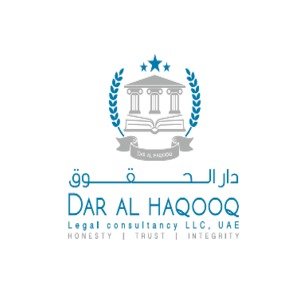Best Bankruptcy & Debt Lawyers in Sharjah
Share your needs with us, get contacted by law firms.
Free. Takes 2 min.
List of the best lawyers in Sharjah, United Arab Emirates
United Arab Emirates Bankruptcy & Debt Legal Articles
Browse our 2 legal articles about Bankruptcy & Debt in United Arab Emirates written by expert lawyers.
- Debt Collectors in UAE: How to Stop Harassment & Verify Debt
- In the UAE, banks and their collection agents must follow Central Bank Consumer Protection rules that prohibit harassment, threats, and disclosure of your debt to third parties without a legal basis or your consent. You can require collectors to verify the debt and their authority. Ask for an itemized statement,... Read more →
- Understanding the UAE's New Bankruptcy Law
- Table of ContentsIntroduction: Demystifying the New LawA Paradigm Shift in UAE Insolvency LawThe Core Objective of the New LegislationWho Does the New Law Apply To? Navigating JurisdictionsOnshore vs. Financial Free Zone ApplicabilityCommercial vs. Personal InsolvencyThe New Judicial FrameworkThe Specialized Bankruptcy CourtSupporting Administrative BodiesPathways to Rescue: Options for Debt ReliefThe Preventive... Read more →
About Bankruptcy & Debt Law in Sharjah, United Arab Emirates
Bankruptcy and debt laws in Sharjah, as throughout the United Arab Emirates, are primarily governed by Federal Law No. 9 of 2016 on Bankruptcy. The law provides a comprehensive and modern legal framework to help individuals and corporations address situations of financial distress or insolvency. It includes provisions for the restructuring of debts, protection from creditors, and potential liquidation of assets. Responding to the unique needs of the UAE economic environment, the law attempts to balance the interests of both debtors and creditors while promoting business stability and growth.
Why You May Need a Lawyer
Navigating bankruptcy and debt proceedings can be a complex process. A lawyer specialized in this field can help you understand your legal rights and responsibilities under UAE law, and can guide you through complicated procedures. Common situations that may require a lawyer include filing for bankruptcy, working out a debt restructuring plan, dealing with aggressive creditors, or defining a course of action when facing severe financial distress. A lawyer can provide you with the necessary professional advice to make informed decisions and can ensure that you comply with all legal requirements.
Local Laws Overview
Key aspects of the UAE Bankruptcy law include the option for companies to restructure their debts while continuing their operations, a legal moratorium on debt repayments, and the possibility of debtor's' imprisonment only in limited circumstances. Furthermore, the law introduces a financial regulator, 'The Committee of Financial Restructuring', and provisions to protect the rights of both debtors and creditors. It's important to note that these laws are federal, meaning they apply uniformly across all the emirates, including Sharjah.
Frequently Asked Questions
1. Can I file for bankruptcy in Sharjah as an individual?
Yes, the bankruptcy law in UAE not only applies to companies but also to individuals who are unable to pay off their debts.
2. What is the process of filing for bankruptcy?
The process usually begins with a petition to the court. It can either be filed by the debtor or, in some cases, by the creditors. Once filed, the court appoints an expert or a trustee to oversee the bankruptcy process.
3. Can bankruptcy prevent my creditors from contacting me?
According to UAE bankruptcy law, upon the acceptance of a bankruptcy or restructuring petition, a protective composition procedure is initiated, which includes a legal moratorium on debt repayments. This prevents creditors from pursuing legal action for debt collection while the bankruptcy proceedings are ongoing.
4. What is insolvency and when is it declared?
Insolvency is a state of economic failure where an individual or a company is incapable of meeting financial obligations with lender creditors as debts become due. It is declared when a debtor files for it, or when creditors file an application declaring the debtor's insolvency.
5. What happens after the bankruptcy process is completed?
Once the bankruptcy process has been successfully completed, the individual or company is usually relieved of the debts that were included in the bankruptcy filing. However, some debts, like those related to fraudulent activities, are exempted from this relief.
Additional Resources
The Federal Law No. 9 of 2016 is an important resource for understanding bankruptcy and debt laws in UAE. For more specialized advice, consider reaching out to legal aid organizations, financial advisory firms, or the 'Committee of Financial Restructuring' under the UAE Ministry of Finance.
Next Steps
If you need legal assistance with bankruptcy or debt in Sharjah, the first step is to find and consult a lawyer who specializes in this field. It's crucial to provide them with all the relevant information about your financial situation to let them guide you effectively through your options. Early legal counsel can significantly impact your financial recovery strategy, so don't delay seeking legal help if you're facing financial distress.
Lawzana helps you find the best lawyers and law firms in Sharjah through a curated and pre-screened list of qualified legal professionals. Our platform offers rankings and detailed profiles of attorneys and law firms, allowing you to compare based on practice areas, including Bankruptcy & Debt, experience, and client feedback.
Each profile includes a description of the firm's areas of practice, client reviews, team members and partners, year of establishment, spoken languages, office locations, contact information, social media presence, and any published articles or resources. Most firms on our platform speak English and are experienced in both local and international legal matters.
Get a quote from top-rated law firms in Sharjah, United Arab Emirates — quickly, securely, and without unnecessary hassle.
Disclaimer:
The information provided on this page is for general informational purposes only and does not constitute legal advice. While we strive to ensure the accuracy and relevance of the content, legal information may change over time, and interpretations of the law can vary. You should always consult with a qualified legal professional for advice specific to your situation.
We disclaim all liability for actions taken or not taken based on the content of this page. If you believe any information is incorrect or outdated, please contact us, and we will review and update it where appropriate.
Browse bankruptcy & debt law firms by service in Sharjah, United Arab Emirates
Sharjah, United Arab Emirates Attorneys in related practice areas.













